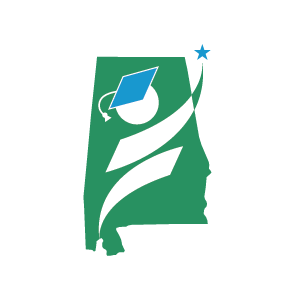Career Technical Education FAQs
What does SAE stand for?
Supervised Agricultural Experience. This is a component of an agri-science program where the student engages in a type of experiential learning project with guidance from the local agri-science instructor.
Where can I find more information about FFAs?
You can find out more about FFAs at Alabama FFA![]()
Who should attend CTE TCP?
Teachers who hold or are eligible to hold the Specialty Area 1 Certificate in Health Science or Technical Education must attend all sessions of CTE TCP. Teachers attending the full one-year CTE TCP cycle will be from one of the following program areas:
- Health Science
- Technical Education (all program areas)
- Cosmetology
- Information Technology
- Culinary Arts
- Law and Public Safety
How do I register for CTE TCP?
Registration for CTE TCP is through STIPD. The local Career and Technical Administrator will provide new teachers with instructions on how to register through STIPD.
Prerequisites, Can that be ANY course now or does it have to be Career Prep?
The answer is Yes, any CT course. There are three ways to qualify.
- The student has had one (1) CT High School course credit
- The student has completed Career Preparedness (Require for students on the Essential Life Skills Pathway)
- You can document the student has achieved the content objectives of Career Preparedness.
By the fall of 2016, most if not all, students will have taken Career Preparedness. Until then, we can still qualify students to enter the WBL. This is not a short cut. It is intended to be an extended opportunity for all students.
The best practice is still to become a concentrator, but it is not always possible. The new policy, levels the playing field for all students. Students with special needs, AP students, Transfer students from other states, previously home schooled students etc. Now virtually every student in a high school can take advantage of WBL (hands on training) in a business or career field with professionals in that field.
After having reviewed the new manual, am I correct in understanding that only two internship types are permitted; Health Science and Education and that the participating student must be enrolled in a respective academy?
The internships are open for virtually any WBL. The revision did not alter the
Alabama State Department Approved National Academy Internships, beginning on page 44. Agriscience also is included in that portion of the manual.
The revision for WBL (Cooperative Education) allows for an unpaid placement of students in any career field, which they have chosen. A paid placement in many career areas was just not available. Being able to offer the opportunity to have hands on WBL can prove invaluable to the student’s career objective.
Do students receive full credit for every 140 hours they work? 2 credits for 280 hours, 3 credits for 420 hours, etc.?
Credit for WBT-work release:
A student may receive One (1) credit for successful completion of a minimum of 140 hours of an internship or apprenticeship for each class period, which the student has registered for. The student may not earn more than one credit for the completion of additional hours in a single class period.
Example: Four Block day:
- The student is registered for 4th block WBL-work release. May receive only One (1) credit for their work with successful completion of a minimum of 140 hours of an internship or apprenticeship. (420 hours does not get 3 credits)
- The student who is registered for 3rd and 4th block WBL-work release. May receive a credit for each period [total of 2 for the semester] with successful completion of a minimum of 140 hours of an internship or apprenticeship for each period they are registered for.
This student could receive a total of Two (2) credits during the first semester. If they register for the same schedule during the spring semester they could receive an additional Two (2) credits. The student may not receive more than one credit for the WBL-work release in any single class period.
Example: Seven Period School Day:
- A student registered for 7th period WBL-work release would receive One (1) credit for the yearlong period with successful completion of a minimum of 140 hours of internship or apprenticeship. The student would not receive 3 credits for 420 hours during the same class period.
- A student registered for 6th and 7th period WBL-work release could receive Two (2) credits for the yearlong periods with successful completion of 140 hours for each class period they have registered for. The student would not receive additional credits during the same class periods.
- A student registered for 5th, 6th, and 7th-period WBL-work release could receive a total of 3 credits for the year-long periods by successfully completing a minimum of 140 hours of internship or apprenticeship for each period they registered for. The student may not receive more than one credit for the WBL-work release in any single class period.
Can students work outside the Child Labor Law restricted hours (5:00 a.m. to 10:00 p.m. preceding a school day)?
There is an exemption form, which is requested and completed, and signed by the local Superintendent. Please remember this is not a blanket exemption. It is a case by case based on student needs, but it can be addressed.

